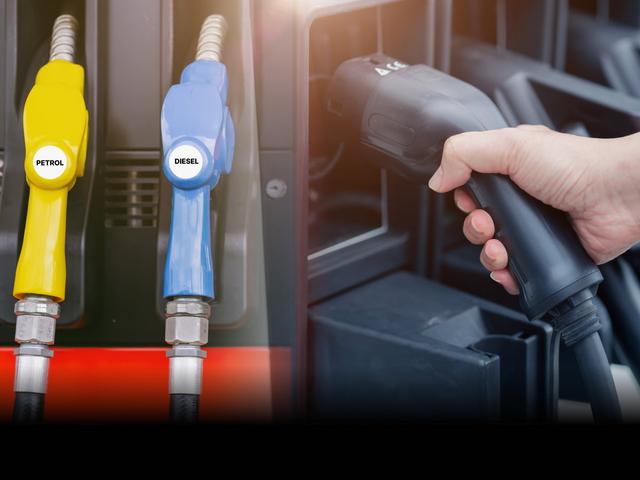


Blink blink !
Its almost here


How To Sell A Car in a Different State
- 1Selling a car in a different state is legal in India
- 2There are specific steps to follow and documents to submit for an interstate sale
- 3Interstate car sales can be done online and offline
The process behind selling a vehicle in a state different from the one it is registered in is more complex than an intra-state sale. At the same time, one should not be dissuaded by the steps involved; they are there to safeguard the interests of both the buyer and the seller, and exist primarily to ensure a secure, transparent and compliant transaction for everyone involved. There are lots of reasons one would consider an inter-state sale of their used car, like relocation or simply seeking a better market value. In order to have a glitch-free sale transaction, ensuring that the appropriate steps are followed is crucial. This guide will walk you through everything you should know before attempting to sell a car in a different state.
Become a part of the official CARS24 auto community; AUTOVERSE, where we host lively auto discussions, updates, and more.
Step-by-Step Guide to Selling a Car in a Different State

While the amount of steps and documents involved to make a sale in a different state might seem overwhelming and time-consuming. It is imperative to remember the steps and documents involved are crucial to keep things above-board and transparent.
Documents Required for Selling a Car in a Different State
To sell a car in another state, the first step is to gather all the essential documents. These documents establish your ownership and the car’s legality:
- Registration Certificate (RC): The original RC of the vehicle.
- Insurance Policy: A valid car insurance policy.
- Pollution Under Control (PUC) Certificate: Mandatory for all vehicles.
- Identity Proof: PAN card, Aadhaar, or Passport.
- Address Proof: Utility bills, Aadhaar card, or rental agreement.
- Form 28: Application for No Objection Certificate (NOC).
- Form 29 and Form 30: To notify the RTO about ownership transfer.
- Loan Clearance/no dues Certificate: If there’s a loan on the vehicle, a clearance/no dues certificate from the financier is required.
Obtaining a No Objection Certificate (NOC)
A No Objection Certificate (NOC) is a crucial document required to sell a car in another state. An NOC is issued by the Regional Transport Office (RTO) in the state where the car is currently registered.
How to Request an NOC from the Originating State’s RTO
- Fill Form 28: Submit three copies of Form 28 at the RTO where the car is registered.
- Clear Dues: Ensure all taxes, fines, and dues are cleared.
- Police Verification: Some states require a clearance certificate from the local police.
- Submit Documents: Along with Form 28, attach the car’s RC, PUC, insurance, and identity proof.
The RTO usually takes 7-30 days to issue the NOC, depending on the workload.
Importance of Form 28 and Clearing Existing Loans
- Form 28: This form indicates that the car is free from legal issues and can be sold in another state.
- Loan Clearance: If your car is under hypothecation, you must first clear the loan and obtain a No Objection Certificate from the financing institution. Submit this certificate to the RTO to update the RC.
Road Tax Clearance
Road tax is a state-specific tax levied at the time of vehicle registration. When selling your car interstate, you need to address road tax liabilities.
Procedure to Clear Road Tax from the Original State
- Request a Road Tax Clearance Certificate: Visit the RTO and apply for a certificate confirming that all road taxes are paid.
- Submit Necessary Documents: Provide your RC, insurance, and tax receipts.
How to Check for Refunds on Remaining Road Tax
If your car’s road tax has been paid for multiple years but you’re selling it before this period ends, you can apply for a refund. Submit an application to the original state’s RTO with the following:
- Original RC and insurance.
- Road tax payment proof.
- NOC.
The refund process may take several months, but ensures you recover unused tax payments.
Buyer Verification
To ensure a secure transaction, verifying the buyer’s identity and intent is crucial.
Tips for Verifying the Buyer’s Identity and Intent
- ID Verification: Request a government-issued ID like Aadhaar, Passport, or Voter ID.
- Address Proof: Ensure the buyer provides valid proof of address.
- Background Check: If possible, verify the buyer’s credibility through references or online checks.
- Written Agreement: Draft a sale agreement outlining terms and conditions, including payment milestones and handover details.
Transfer of Ownership
Ownership transfer involves registering the car in the buyer’s name at the new RTO. Here’s how to proceed:
- Submit Forms 29 and 30: These forms notify the RTO of the ownership change.
- Provide NOC: The buyer will need your NOC to complete the registration process.
- New RC Issuance: The buyer’s RTO will issue a new RC in their name.
Cancellation of NOC (if needed)
If the sale doesn’t go through after obtaining an NOC, you must cancel it to avoid future complications.
Steps to Cancel an NOC and Avoid Legal Complications
- Request Cancellation at the Original RTO: Submit a written application along with the issued NOC.
- Provide Supporting Documents: Include RC, insurance, and identity proof.
- Obtain Confirmation: Ensure the RTO records the cancellation to prevent misuse.
Interstate Car Sale: Online vs Offline
Online platforms like CARS24 provide convenient solutions for interstate car sales offering services such as:
- Instant car valuation.
- Assistance with RTO documentation.
- Buyer-seller matching.
Benefits of Offline RTO Visits for Verification
- Direct Communication: Face-to-face interactions reduce misunderstandings.
- Transparency: You can personally verify the authenticity of documents.
- Timely Updates: Offline visits ensure that updates and approvals are obtained without delays caused by technical glitches.
Tips to Ensure a Hassle-Free Interstate Car Sale
Interstate car sales involve a lot of steps and documents that require processing by the authorities. Given that, there are a few tips to keep in mind to ensure a smooth transaction.
- Start Early: Initiate the process well in advance to avoid last-minute hurdles.
- Keep Records: Maintain copies of all submitted forms and receipts.
- Use Reputable Platforms: For online sales, choose trusted platforms like CARS24.
- Communicate Clearly: Ensure the buyer understands all terms and conditions before proceeding.
- Hire an Agent: If you’re unfamiliar with RTO procedures, consider hiring an agent to assist.
Key Challenges of Selling a Car in a Different State
If you have decided to sell your car in a different state, it is a good idea to make a note of all the possible challenges that could arise.
- Variation in RTO Regulations: Each state has unique rules, which can complicate the process.
- Road Tax Clearance: Obtaining a refund or clearance may take time and effort.
- Buyer Verification: Ensuring the buyer’s credibility can be challenging, but it’s a crucial step to follow.
- Delays in NOC Issuance: The NOC process may be delayed due to pending dues or administrative backlogs.
- Ownership Transfer Issues: Errors in documentation can delay the transfer process.
Conclusion
Selling a car in a different state in India requires meticulous planning and adherence to RTO guidelines. By following the steps outlined in this guide—from gathering documents to completing ownership transfer—you can ensure a smooth and hassle-free sale. While challenges like varying state regulations and road tax clearance exist, proactive measures and the use of online platforms like CARS24 can simplify the process. With careful preparation, selling your car across state borders can be a seamless experience.
Frequently Asked Questions
Expand all

Blink blink !
Its almost here













.jpg&w=640&q=75)









Blink blink !
Its almost here





.webp&w=828&q=75)






